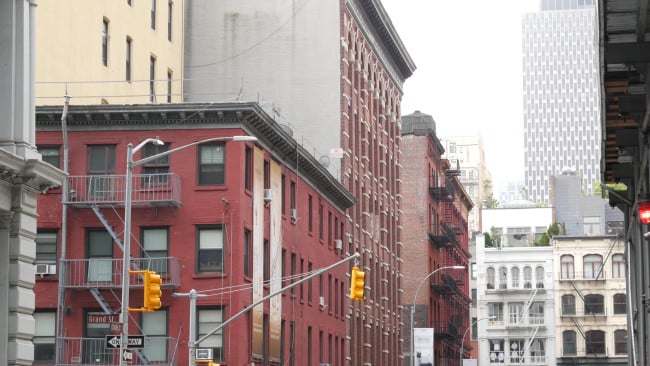Ask Altagracia: Is a landlord supposed to cover the cost of heat in a rent-stabilized apartment?
- It’s on you to find the evidence to prove that paying for heat is not your responsibility
- Your lease and your apartment’s rent history will help determine who pays for heat

If you live in a new building and are rent stabilized as a result of 421-a, it is relatively likely you will pay for heat.
iStock
I pay $200 a month for heat in my rent-stabilized apartment, as required by my lease. But shouldn't this cost be the landlord's responsibility?
To figure out whether you are responsible for paying for heat in your rent-stabilized apartment, you will need to look at your lease. It’s important to look at the first lease you signed, not just your renewal lease. “It is possible for your lease to legally require you to pay for heating,” said Altagracia Pierre-Outerbridge, attorney and founder of Outerbridge Law representing residential tenants, condo owners and landlords.
Landlords are required to provide heat to their buildings, but not necessarily cover the cost of heat for tenants. If you live in a new building and you are rent stabilized as a result of the 421-a tax abatement program, where developers get incentives to build affordable housing, it is relatively likely you will pay for heat.
However, if the landlord provided heat in the past, they must continue to pay for the service. “This is how rent stabilization works—you pay your rent and you get a fixed bundle of required services, which the landlord must continue to include in your rent,” Pierre-Outerbridge said.
Figure out who pays for heat
Requesting your rent history from the New York State Division of Housing and Community Renewal (DHCR) is the best way to find out whether the landlord previously covered the cost of heat and has illegally transferred that cost to tenants.
“In addition to having your rent history, the document you receive will also show what services the landlord provides and many will say heat,” Pierre-Outerbridge said.
If heat is listed, you can file an overcharge complaint with DHCR for a reduction in services. This can take some time but a successful DHCR proceeding will end with an enforceable judgement and can also award attorneys fees.
Further investigation may be needed
If heat is not listed in your rent history, you may need to do some more investigative work, even going back to 1974 when rent stabilization was introduced. For this, you will typically need a lawyer.
“An attorney can help identify the grounds by which you are rent stabilized and ensure you have the evidence you need to prove a reduction in services,” Pierre-Outerbridge said.
It’s on you to find the evidence to prove that paying for heat is not your responsibility.
The impact of carbon emission mandates
The problem of who pays for heat may be one that comes up with increasing frequency, as the city mandates electrification through Local Law 97. This law requires property owners to lower emissions and some landlords are removing aging centralized boilers and converting to individual electric heat pumps in apartments.
“Even so, the landlord cannot just shift that cost to a rent-stabilized tenant,” Pierre-Outerbridge said. In a market-rate apartment, you would need to refer to your lease and potentially negotiate with your landlord.
If your apartment is equipped with a mini-split, which is a heat pump that provides heating and cooling, you may not be able to avoid an air conditioning surcharge.
Take some precautionary measures
If you plan to sign a lease for a rent-stabilized apartment in a new building, be aware of what is or is not included in your rent and double check your rent history to make sure.
If your Con Edison bill is higher than you expect, monitor your usage to ensure it is directly related to your bill.
“You can also call Con Edison out to the apartment to ensure you are being correctly billed only for the electricity you are using,” Pierre-Outerbridge said.
Altagracia Pierre-Outerbridge, Esq. is the owner of Outerbridge Law P.C, focusing primarily on tenant representation. The firm represents all sides in landlord-tenant litigation and transactional matters such as month-to-month holdovers, nuisance cases, licensee cases, harassment claims, repair cases, tenant buyouts, succession claims, DHCR overcharges and rent reductions and more. Pierre-Outerbridge has 15 years of experience litigating in Supreme, DHCR, and Housing Court. To submit a question for this column, click here. To contact Outerbridge Law P.C. directly, call 212-364-5612 or 877-OUTERBRIDGE, or schedule a meeting today.
You Might Also Like


























